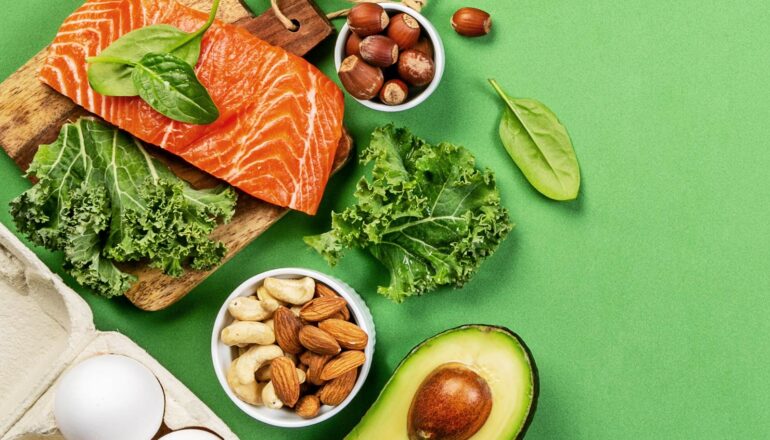Is a keto diet good for brain health?
- A new study suggests that a ketogenic diet may help preserve brain health and prevent cognitive decline in individuals at risk of developing Alzheimer’s disease.
- The research, led by Ai-Ling Lin and Kira Ivanich, found that females with the APOE4 gene, a genetic risk factor for late-onset Alzheimer’s, showed improved gut bacteria and brain energy when on a ketogenic diet compared to those on a higher-carb diet.
- A ketogenic diet works by producing ketones, which can be used as an alternative fuel source for the brain, potentially decreasing the risk of developing Alzheimer’s disease.
- The study highlights the importance of precision nutrition, taking into account factors such as genotype, gut microbiome, gender, and age to determine who may benefit most from a ketogenic diet.
- The researchers hope that their findings can lead to early interventions and improved brain health outcomes for individuals at risk of Alzheimer’s disease, with the ultimate goal of preserving cognitive function and quality of life.

There may be a way to protect brain energy to preserve cognition—and the secret could lie on your plate, new research suggests.
Think fish and seafood, meat, non-starchy vegetables, berries, nuts, seeds, eggs, and even high-fat dairy products.
Researchers are now testing just how powerful these foods can be. They’ve found that a high fat, low carb diet—known as the ketogenic diet—may not only preserve brain health but also stop or slow the signs of cognitive decline for those at higher risk of developing Alzheimer’s disease.
Ai-Ling Lin, a professor in the School of Medicine at University of Missouri, and doctoral student Kira Ivanich are studying whether a ketogenic diet can be particularly helpful for those born with the APOE4 gene, the strongest known genetic risk factor for late-onset Alzheimer’s disease.
In a recent study involving mice, they found that females with the APOE4 gene had healthier gut bacteria and more brain energy while eating a ketogenic diet compared to a control group eating a higher-carb diet. While males did not see these same improvements, the study offers insight into who may benefit the most from eating a ketogenic diet.
That’s because the diet changes how the brain fuels itself.
“When we eat carbs, our brains convert the glucose into fuel for our brains, but those with the APOE4 gene—particularly females—struggle to convert the glucose into brain energy, and this can lead to cognitive decline down the road,” Ivanich says.
“By switching to a keto diet, ketones are produced and used as an alternative fuel source. This may decrease the chance of developing Alzheimer’s by preserving the health of brain cells.”
The results highlight the importance of precision nutrition—tailoring diets and interventions to those who would benefit most.
“Instead of expecting one solution to work for everyone, it might be better to consider a variety of factors, including someone’s genotype, gut microbiome, gender, and age,” Lin says.
“Since the symptoms of Alzheimer’s—which tend to be irreversible once they start—usually appear after age 65, the time to be thinking about preserving brain health is well before then, so hopefully our research can offer hope to many people through early interventions.”
For Ivanich, that real-world impact is personal.
“When my grandmother got Alzheimer’s, that sparked my interest in this topic, so being able to make an impact to help people preserve their brain health is very rewarding,” she says.
The research appears in the Journal of Neurochemistry.
Source: University of Missouri
The post Is a keto diet good for brain health? appeared first on Futurity.
